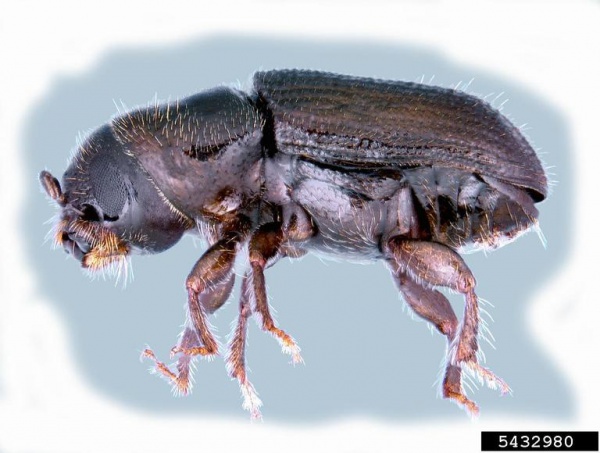Facts About Dendroctonus frontalis
The southern pine beetle, scientifically known as *Dendroctonus frontalis*, is a bark beetle native to the forests of the southern United States, Mexico, and Central America. This tiny insect, measuring about 3 mm in length, has a reddish-brown to black exoskeleton. Distinguishing between males and females requires close examination: males feature a notched frons on their heads, while females possess a broad, elevated transverse ridge. Both genders share a rounded hind abdomen.
These beetles infest various species of pine trees, including loblolly pine (*P. taeda*), shortleaf pine (*P. echinata*), slash pine (*P. elliottii*), Virginia pine (*P. virginiana*), pitch pine (*P. rigida*), longleaf pine (*P. palustris*), pond pine (*P. serotina*), table mountain pine (*P. pungens*), eastern white pine (*P. strobus*), ponderosa pine (*P. ponderosa*), Engelmann spruce (*P. engelmannii*), Chihuahua pine (*P. leiophylla*), Caribbean pine (*P. caribaea*), Maximinoi pine (*P. maximinoi*), and ocote pine (*P. oocarpa*).
In the southeastern United States, the southern pine beetle is notorious for causing extensive damage to forests, resulting in significant economic losses for the forestry industry. From 1960 to 1990, these beetles were responsible for an estimated $900 million in damages.

 Mexico
Mexico